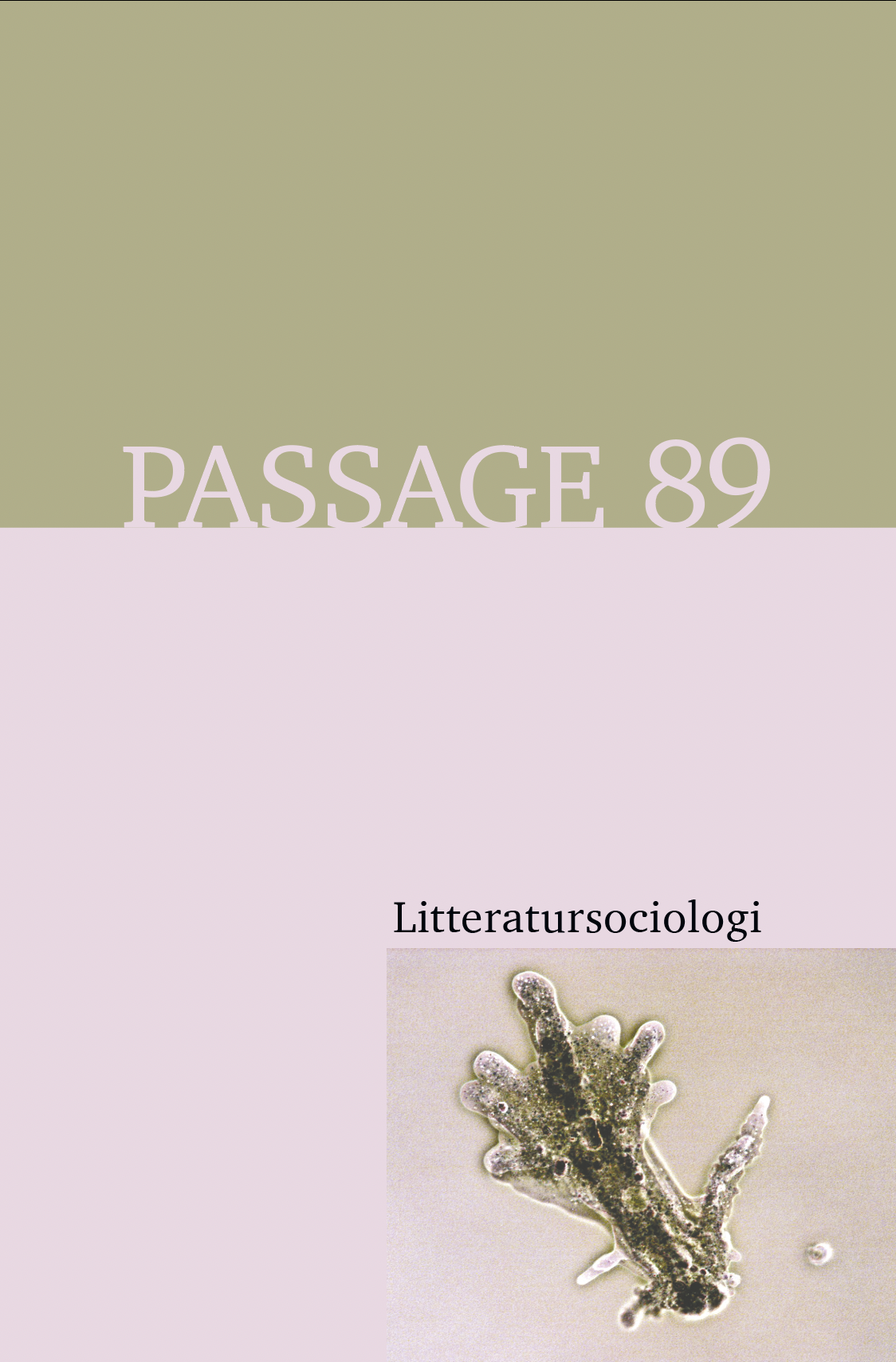“A Danish Genius of Madness”
Tove Ditlevsens comeback og globale gennembrud som litteratursociologisk case
DOI:
https://doi.org/10.7146/pas.v38i89.137909Nøgleord:
Tove Ditlevsen, Passage, Litteratursociologi, Social realism, Pierre Bourdieu, Bruno LatourResumé
Within the last decade, the Danish author Tove Ditlevsen (1917-1976) has experienced a remarkable renaissance: her works are massively being reissued and her legacy is taken up by young poets and artists. The “Tove fever” is also an international phenomenon – as most lately witnessed by the inclusion of “The Copenhagen Trilogy” (Childhood, Youth, Dependency, 1969-71) in the Penguin Modern Classics Series in 2021. Subsequently, the trilogy has been sold for publication in 32 countries worldwide. After having been dismissed by the Danish literary establishment in her lifetime as a female author of social realism and “confessional literature”, Ditlevsen is now celebrated as one of the most important and unique voices in 20th century Danish literature and as a precursor of Karl Ove Knausgård, Annie Ernaux, Rachel Cusk. But what are the reasons for this rediscovery? In the perspective of Bourdieusian sociology, the writing up of Ditlevsen may be seen as an instance of the fall of high Modernism and as an example of the constant metamorphosis of literary taste. However, we may also view the case through the lenses of Latourian actor-network-theory. The article tries to combine the two theoretical approaches by offering an outline of the most important actors in the current rediscovery and transmission of Ditlevsen’s work, while also paying attention to the aesthetic judgements and forms of attachment characterizing the “Tove fever”.
Downloads
Publiceret
Citation/Eksport
Nummer
Sektion
Licens
Forfattere, der publicerer deres værker via dette tidsskrift, accepterer følgende vilkår:
- Forfattere bevarer deres ophavsret og giver tidsskriftet ret til første publicering, samtidigt med at værket efter publiceringen er omfattet af en Creative Commons Attribution-licens, der giver andre ret til at dele værket med en anerkendelse af værkets forfatter og første publicering i nærværende tidsskrift.
- Forfattere kan indgå flere separate kontraktlige aftaler om ikke-eksklusiv distribution af tidsskriftets publicerede version af værket (f.eks. sende det til et institutionslager eller udgive det i en bog), med en anerkendelse af værkets første publicering i nærværende tidsskrift.
- Forfattere har ret til og opfordres til at publicere deres værker online (f.eks. i institutionslagre eller på deres websted) forud for og under manuskriptprocessen, da dette kan føre til produktive udvekslinger, samt tidligere og større citater fra publicerede værker (se The Effect of Open Access).





